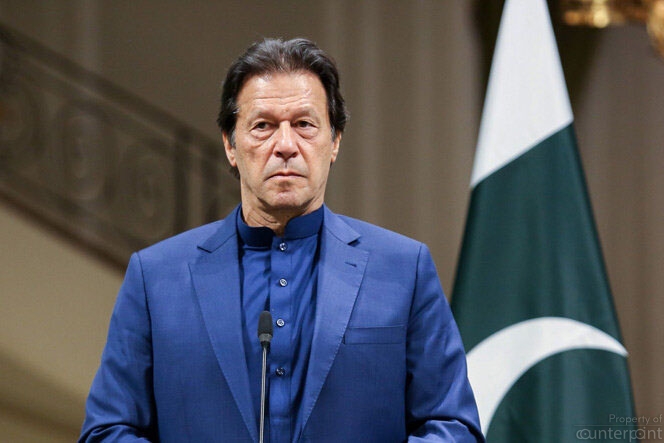- Speaker cites COVID-19 and its new variant as the reason for the cancellation
- Others think it is to address India’s concerns
The Sri Lankan government has cancelled Pakistan Prime Minister Imran Khan’s address to the Lankan parliament which had been scheduled for February 24 during Khan’s two-day visit to the country.
Sri Lankan Foreign Secretary Adm.Prof.Jayanath Colombage said that Parliament Speaker Mahinda Yapa Abeywardena had written to the government saying that due to the COVID-19 pandemic and the new strain which has appeared, he is unable to ensure full attendance in parliament on the occasion. He sought a postponement of the event, Adm.Colombage said.
According to Foreign Minister Dinesh Gunawardena, the Pakistan Prime Minister had requested to address the Lankan Parliament. The request was granted by the government and it was agreed that the event would take place on February 24. In March 2015, Indian Prime Minister Narendra Modi had addressed the Sri Lankan Parliament.
According to unofficial but reliable sources, sections of the government had reservations about the decision to have the Pakistan Prime Minister address the Lankan parliament as it could sour relations with India. India’s apprehension could be that the Pakistani leader would raise the Kashmir issue in his address.
Traditionally, the Sri Lankan government has been avoiding the Kashmir issue in deference to India’s sensitivity over the matter. But for Pakistan, the Kashmir issue has been the most important one, the fulcrum of the country’s foreign policy, as it were. If Imran Khan were to raise the issue in the Sri Lankan parliament it would get him brownie points back home.
By seeking an opportunity to speak in the Sri Lankan parliament, Imran Khan could also achieve parity with his regional rival, Indian Prime Minister Narendra Modi. But India might demur if Colombo were to equate it with Pakistan.
India-Sri Lanka relations are a bit fragile now as India is nursing a wound inflicted on it by the sudden cancellation of a deal over the East Container Terminal in Colombo port.
The objective of Pakistani Prime Minister’s visit is to strengthen ties with the only South Asian nation with which it has consistently close and good ties. It is undeniable that Sri Lanka-Pakistan relations have been cordial and strong right from the late 1940s when both received independence from Britain.
The All Ceylon Muslim League (ACML), headed by the renowned Muslim leader the Late, T.B.Jaya, had been a firm supporter of the Pakistan movement through the 1940s. As the ACML was an ally of the then-dominant United National Party (UNP), T.B. Jaya was sent to Pakistan as Ceylon’s envoy.
In the 1950s, both Ceylon and Pakistan were in the anti-communist US-led camp. The relationship remained strong even when Ceylon changed its political colour and became pro-Soviet and pro-Beijing during the Premiership of Mrs Sirimavo Bandaranaike. Ceylon under Mrs Bandaranaike allowed Pakistani military aircraft to refuel in Colombo 174 times during the Bangladesh freedom struggle when India had banned Pakistani aircraft from flying over its territory. Colombo ignored New Delhi’s objections to the latter’s surprise and dismay.
Later, in the 1990s, the West, as well as India, were refusing to sell or supply weapons to Sri Lanka to fight Tamil separatism and terrorism because they supported the Tamil minority’s political demands or were sympathetic to their plight from the human rights angle. Pakistan stepped into the breach and supplied much-needed weaponry. Pakistan’s support had also come at some of the most critical junctures during the war. Pakistani pilots were on hand to advise the Lankan Air Force which had shifted to the offensive mode for the first time.
Pakistan (along with China and Russia) has been consistently and strongly supporting the Sri Lankan government in international forums on the issue of terrorism and separatism. It has consistently rejected the Western countries’ charge that the Lankan forces had committed “war crimes”.
Sri Lanka is eagerly waiting for Pakistan’s help to garner the support of Muslim countries in the 47-member UN Human Rights Council (UNHRC) in which a hostile resolution against it is likely to be introduced in March. The resolution is expected to call for Sri Lanka’s reference to the International Criminal Court at The Hague.
Pakistan and India are both members of the UNHRC and both can help Sri Lanka fight its case. As a result, Sri Lanka has to honour both, a delicate task.



 Logging you in...
Logging you in... Loading IntenseDebate Comments...
Loading IntenseDebate Comments...

